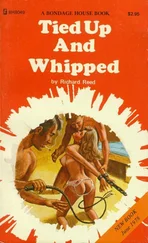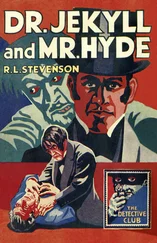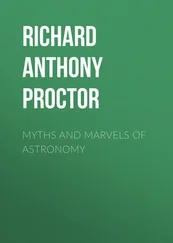Richard Fowler - Experiments and Observations
Здесь есть возможность читать онлайн «Richard Fowler - Experiments and Observations» — ознакомительный отрывок электронной книги совершенно бесплатно, а после прочтения отрывка купить полную версию. В некоторых случаях можно слушать аудио, скачать через торрент в формате fb2 и присутствует краткое содержание. Жанр: foreign_antique, foreign_prose, на английском языке. Описание произведения, (предисловие) а так же отзывы посетителей доступны на портале библиотеки ЛибКат.
- Название:Experiments and Observations
- Автор:
- Жанр:
- Год:неизвестен
- ISBN:нет данных
- Рейтинг книги:5 / 5. Голосов: 1
-
Избранное:Добавить в избранное
- Отзывы:
-
Ваша оценка:
- 100
- 1
- 2
- 3
- 4
- 5
Experiments and Observations: краткое содержание, описание и аннотация
Предлагаем к чтению аннотацию, описание, краткое содержание или предисловие (зависит от того, что написал сам автор книги «Experiments and Observations»). Если вы не нашли необходимую информацию о книге — напишите в комментариях, мы постараемся отыскать её.
Experiments and Observations — читать онлайн ознакомительный отрывок
Ниже представлен текст книги, разбитый по страницам. Система сохранения места последней прочитанной страницы, позволяет с удобством читать онлайн бесплатно книгу «Experiments and Observations», без необходимости каждый раз заново искать на чём Вы остановились. Поставьте закладку, и сможете в любой момент перейти на страницу, на которой закончили чтение.
Интервал:
Закладка:
I was now no longer at a loss to account for the contractions produced by the gold tooth pick, since the circumstances both of that case, and of the experiment related, were probably the same, two metals in contact with each other. The gold in immediate contact with a nerve; and the silver case communicating with it, and the muscles through the medium of the moisture, with which the whole was perhaps surrounded. This led me to examine the chain, and the cannula. I found both the links of the one, and the sides of the other, soldered with a different metal 3 3 If further experiments should establish decidedly, that the mutual contact of two different metals is absolutely necessary for the productions of Galvani’s phenomena, may not this circumstance afford an useful test of the purity of the precious metals? For instance, contractions in an animal produced by the contact of a piece of gold or silver, whose purity we wish to ascertain, with a piece of the same metal known to be pure, would then prove incontestably the presence of alloy.
. So that, in these cases, two metals had at the same time been in contact with a nerve, with moisture, and with each other.
However this may be with respect to the necessity of mutual contact, between two different metals in order to excite contractions, I have long ago found, that contractions may be excited in an animal, when no more than one metal is in contact with it 4 4 In an able lecture, which Dr Monro lately delivered, chiefly upon this subject, he demonstrated the possibility of exciting contractions in the limb of a frog, without either of the metals he employed being in contact with it; or having any other communication with it than through the medium of some moist substance. In varying this experiment, I find, that if a frog be divided in two parts, just above the origin of the sciatic nerves, and put into a bason of water, the hind legs may be thrown into strong contractions, by bringing zinc, or tin-foil, and silver, in contact with each other, at the distance of at least an inch from the divided spine, so long as they are kept nearly in a right line with it. Water, in this case, is the only communication between the metals and the origin of the nerves.
.
At the time I first observed this fact, I was making experiments to ascertain whether it was possible to transmit the influence, which had excited contractions in one leg, into another, removed to some distance from it, and communicating with it, only by means of a single conducting substance, (such as silver, for example). For this purpose, I had separated from the trunk, and from each other, the hind legs of a frog recently killed, and had detached their nerves as far as the knee. I then laid them at some distance from each other, upon a plate of glass, and included the nerve of one leg, and the foot of the other, in the folded ends of a silver chain. With one hand I now raised from the muscles, upon the end of a silver probe, the nerve of the leg, whose foot was folded in the chain; and with a piece of zinc, in the other hand, touched, at the same time, the nerve and the probe. This leg was thrown into strong contractions; but none were excited in the other. I then touched the chain, and nerve of the other, and, to my surprise, both legs instantly contracted. I had observed, in the beginning of November last, that it was not necessary for the metals to be in contact with any thing but nerve, in order to excite contractions in the muscles, to which it was distributed; and had mentioned this fact immediately afterwards to the Medical Society of this place, as a sufficient refutation of the theory, which Dr Valli had formed of Galvani’s discovery. It would not, therefore, have surpassed my expectations, had the influence, excited by the mutual contact of a piece of zinc, and probe, with the nerve, passed through the medium of the chain, from the leg, in which it first excited contractions, and produced contractions in the distant leg. But, I now thought that I had not only passed the influence from one leg to the other, but in one of the legs in a direction contrary to the course of its nerves. The removal of the leg, whose nerve communicated with the chain, convinced me of my error: but, at the same time, discovered to me a fact of much greater importance, than any with which I had hitherto been acquainted. For now, upon touching the chain alone with the zinc, I found that the leg, whose foot it still included, and whose nerve I held suspended upon a probe, contracted as strongly as before. The influence of the two metals, in contact with the nerve of the other leg, had not, therefore, passed into, and excited this.
It had from the first been known, that contractions could be excited by placing two different metals in contact, one with the nerve, the other with the muscles, and making a communication between them: but, in this experiment, the only metal in contact, either with the nerve, or muscle, was silver. Neither had the influence passed through the chain, and up the leg against the course of the nerve, in consequence of a communication by means of moisture subsisting between the zinc, and the foot, as well as between the silver chain, and the foot; for the experiment succeeded equally well when the chain was removed, and the foot laid upon a silver plate made perfectly dry. But when either the zinc, or probe was held by another person not communicating with me; or when either of them was insulated in a stick of sealing wax; no contraction whatever took place. Neither, indeed, were contractions excited in any part of the leg, except the foot, when the probe was withdrawn from the nerve; and the foot, and silver, were both touched with the zinc. It is then clear, that the influence, which, in the former case, excited the whole leg to contraction, must have passed through the medium of my body. It is not necessary that the silver should be laid under the foot; all that is required, is, that it should communicate with it by means of moisture; it may then be laid at almost any distance from it 5 5 The contractions produced seemed to be strong in proportion to the extent of the surfaces of the metals in contact, strongest when a large plate of zinc is laid horizontally upon a large plate of silver or gold. If the zinc be suffered to remain in contact with the silver, for a little time, the contractions of the leg cease. The zinc may then be slid over the silver, till it even touch the leg without renewing the contractions: but, in withdrawing the silver, the leg contracts at the instant the silver parts from it!
.
The course of this influence, however, was still undetermined: it might be from the muscles to the nerve: it might be from the nerve to the muscles. To ascertain this, and to prove that the influence, which had excited one limb to contraction, might pass on, through a foreign medium, and excite contractions in another, I made the following experiment.
The leg of a frog was disposed as in the former experiment. The probe, suspending the nerve, was held by myself; the zinc excitor by another person; and the leg of another frog formed the communication betwixt us. So long as I had hold of the nerve, and the person assisting me held the foot of this interposed leg, no contractions were excited in it, by the influence, which passed through it and excited the other leg. But when the person holding the zinc, held the nerve of the interposed leg; and I held the foot, both legs contracted with equal strength. From this experiment it is evident, that Galvani’s influence had passed either from the muscles, or the zinc and silver; and in the direct course of the nerves of both legs.
I was now in possession of an easy method of ascertaining the different substances, which do, or which do not, afford a passage to this new influence.
All the metals when pure appear to be excellent conductors; not quite so good when in the ore; and, I think, least so when combined with acids, forming metallic salts. They are however, in this state, by no means bad conductors, even when so carefully dried, as to leave no suspicion of the slightest degree of moisture adhering to their surface. But, when the metals are calcined, their capacity as conductors is quite destroyed: at least this was the case with the calces of zinc, of bismuth, of iron, and of mercury; the only ones, with which I have had an opportunity of making the experiment. I could not observe that any contractions were excited through the medium of stones, nor ever through barytes.
Читать дальшеИнтервал:
Закладка:
Похожие книги на «Experiments and Observations»
Представляем Вашему вниманию похожие книги на «Experiments and Observations» списком для выбора. Мы отобрали схожую по названию и смыслу литературу в надежде предоставить читателям больше вариантов отыскать новые, интересные, ещё непрочитанные произведения.
Обсуждение, отзывы о книге «Experiments and Observations» и просто собственные мнения читателей. Оставьте ваши комментарии, напишите, что Вы думаете о произведении, его смысле или главных героях. Укажите что конкретно понравилось, а что нет, и почему Вы так считаете.












